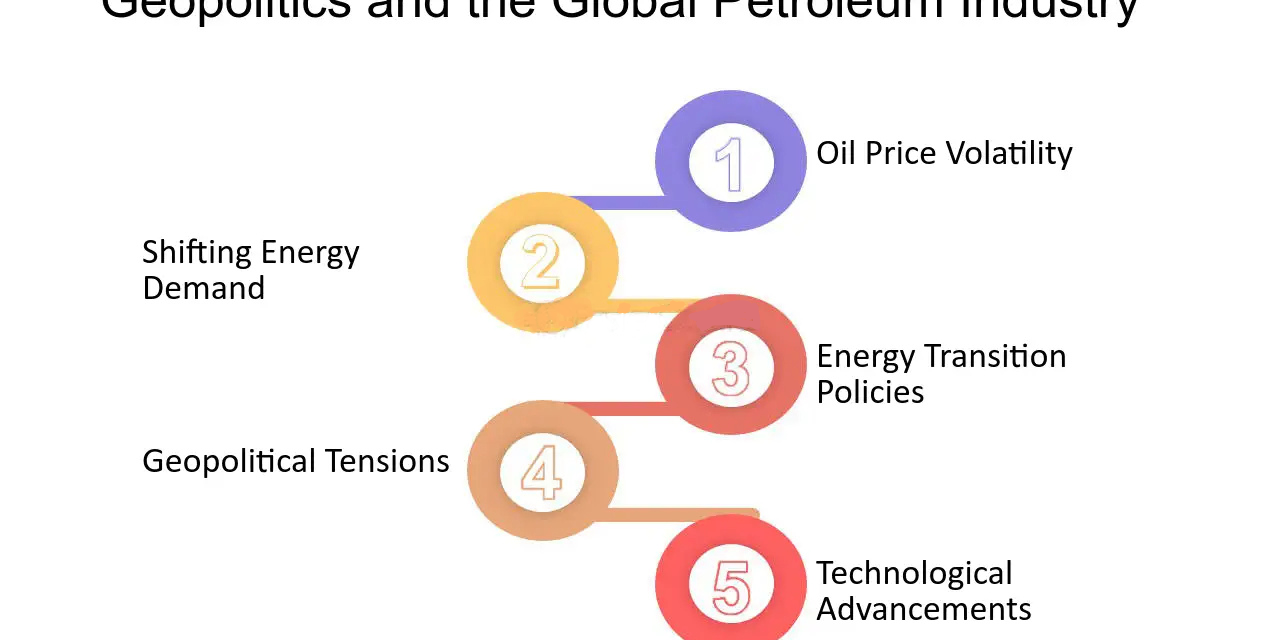Geopolitical tensions are significantly impacting petrochemical exports by disrupting supply chains, altering trade routes, and influencing market dynamics. Here’s an analysis of their effects:
1. Supply Chain Disruptions
- Sanctions and Trade Restrictions: Countries facing sanctions, such as Russia or Iran, encounter limitations on exporting petrochemical products, affecting global supply.
- Logistical Challenges: Political instability can disrupt transportation routes, causing delays and increased shipping costs for exporters.
2. Trade Route Shifts
- Alternative Markets: Exporters may shift focus to less affected regions or ally nations, such as increased trade between Middle Eastern countries and Asia.
- Maritime Route Vulnerability: Key chokepoints like the Strait of Hormuz are at risk of disruption due to conflicts, impacting the flow of petrochemicals.
3. Impact on Pricing
- Volatility in Oil and Gas Prices: Geopolitical tensions often lead to fluctuations in feedstock prices, directly influencing petrochemical costs.
- Regional Pricing Disparities: Export restrictions or tariffs can create price differences between regions, affecting competitiveness.
4. Realignment of Trade Partnerships
- New Alliances: Countries may forge new trade agreements to bypass restrictions or reduce dependency on volatile regions.
- Localization Trends: Some nations invest in local petrochemical production to minimize reliance on imports from politically unstable areas.
5. Reduced Investments
- Uncertainty for Exporters: Geopolitical instability discourages foreign direct investment in affected regions, limiting capacity expansions and technological upgrades.
6. Tariffs and Trade Wars
- US-China Trade War: Tariffs imposed on petrochemical products have disrupted traditional trade flows and forced exporters to explore alternative markets.
- EU Sanctions: Restrictions on Russian energy exports due to geopolitical tensions have significantly altered European petrochemical supply chains.
7. Shift to Regional Trade
- Emerging Markets: Asia-Pacific and Africa are becoming key destinations for petrochemical exports as geopolitical tensions redirect flows from Western nations.
- Regional Stability: Countries in stable geopolitical climates gain leverage as exporters seek consistent demand and secure routes.
8. Diversification of Export Hubs
- Strategic Investments: Companies are investing in regions with low geopolitical risks to establish alternative hubs for production and export.
- Middle East Dominance: The Middle East is leveraging its geopolitical stability to dominate global petrochemical exports despite challenges.
9. Decarbonization and Sustainability
- Shift in Demand: Geopolitical conflicts often push governments to focus on energy independence and sustainability, reducing reliance on petrochemicals in the long term.
- Exporters Adapting: Petrochemical exporters are diversifying into bio-based chemicals to remain competitive in markets with stringent environmental policies.
10. Global Trade Fragmentation
- Bifurcated Markets: Increasing geopolitical divides may result in fragmented global markets, with separate trade blocs for allied and non-aligned nations.
- Regulatory Challenges: Exporters face varying standards and compliance requirements across regions influenced by political alliances.
Conclusion
Geopolitical tensions reshape the petrochemical export landscape by influencing trade flows, pricing, and investment decisions. To mitigate risks, exporters are diversifying markets, adapting to sustainability trends, and leveraging technology for resilience.
Hashtags
#GeopoliticalRisks #GlobalTensions #TradeDisruptions #EnergyGeopolitics #GeopoliticsAndTrade #PetrochemicalExportChallenges #PetrochemicalExports #ExportRisks #ChemicalTradeImpact #GlobalExportChallenges
#SupplyChainDisruptions #EnergyMarketImpact #TradeAndLogistics #GlobalSupplyChains #MarketVolatility #RegionalTensions #PolicyImpactOnTrade #GlobalTradePolicy #ExportRegulations #EnergyPolicyImpact #EconomicImpact #PetrochemicalEconomy #TradeWarImpact #IndustryAdaptation #MarketTrends #ResilientSupplyChains #GlobalCollaboration #PetrochemicalStrategy #RiskManagement #TradeResilience










